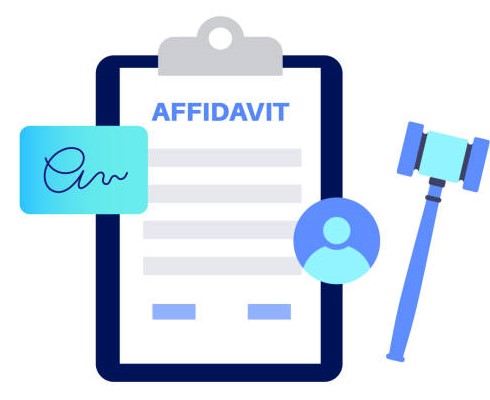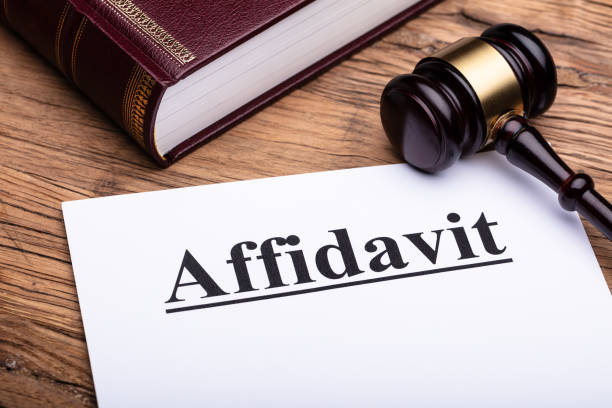Navigating legal processes in Dubai often involves ensuring the authenticity and legal standing of crucial documents, and one essential aspect of this is the notarized affidavit in Dubai. A notarized affidavit serves as a sworn statement affirmed before a notary public, adding a layer of legal credibility to the document. In Dubai, the notarized affidavit plays a pivotal role in various legal transactions, including but not limited to real estate dealings, business transactions, and immigration processes. The process of obtaining a notarized affidavit in Dubai involves meticulous adherence to legal procedures, emphasizing the significance of accuracy and authenticity in the documentation.
As individuals and businesses engage in legal matters within the emirate, understanding the importance of a notarized affidavit in Dubai becomes imperative for safeguarding the integrity and legal validity of critical documents.
In the UAE, affidavits must always undergo the proper notarization process through a public notary. Notarization involves the solemn affirmation that the facts presented in your document are true. To have a document notarized by a public notary in Dubai or anywhere in the UAE, it must be signed in the presence of the notary public, who will also sign the document and affix a seal or stamp.
Affidavits are formal written statements that are notarized by public notaries in Dubai and the other emirates. These documents serve as legally recognized statements when you cannot testify in person. While preparing affidavits is not overly complex, it is essential to include specific and firsthand information, not relying on speculation or secondhand accounts.
Steps to Obtain a Notarized Affidavit in Dubai
Follow these steps to have an affidavit notarized by a public notary in the UAE:
Step 1: Take an unsigned affidavit to a public notary in Dubai/UAE.
Ensure that the affidavit is NOT pre-signed. Regulatory authorities prohibit public notaries from handling any document that has already been signed without their presence and witnessing.
Additionally, remember to bring valid identification documents for the public notary in Dubai to verify your identity. Accepted forms of proof of identity typically include a passport, Emirates ID, or driver’s license. In cases where clients have lost their identification papers due to disasters such as floods or fires, the notary may exercise discretion.
Step 2: Request Notarization
Once you have your affidavit ready for notarization in the UAE, fill out the request form for the service of your selected notary public. Be sure to provide all the necessary information accurately, as incomplete requests may not be accepted. Additionally, you can schedule an appointment with a notary public in Dubai to ensure prompt attention to your request.
Step 3: The public notary will verify your identification documents.
A notary public confirms the identity of a signer by examining the provided identification. In the case of affidavits, the notary public can also help prepare the document for you. You will sign the affidavit during your appointment for notarization in Dubai.
Step 4: Sign the document in the presence of the notary public.
If your affidavit and identification papers are clear and eligible for notarization, the public notary will ask you to sign the document. The notary will observe the signing to ensure it is voluntary and not under duress. If there is any suspicion that you are being forced to sign against your will, the notarization procedure will be halted.
Step 5: The public notary will also sign and seal the document.
One of the document signatories for notarized affidavits in Dubai is at least one credible witness, typically a public notary in Dubai. After witnessing and signing the affidavit, the notary will record the transaction in the official journal. Your affidavit notarization in Dubai will be documented in the notary’s journal, including details such as the location and date of notarization.
Additionally, the public notary will affix the official public seal or stamp to your affidavit, indicating that it has been notarized.
Last Step: Make payment to the notary for their services.
The fees for notarial services will vary based on the purpose of the affidavit and the location where the document is notarized. Many reputable public notaries in Dubai provide mobile notary services for added convenience, eliminating the need for you to visit their offices.
Like Notarized Affidavit In Dubai, You may also like to read about Residency Declaration In The UAE.

Requirements for a Notarized Affidavit in Dubai
In UAE, notarized affidavits are required in various cases. In family law matters, a notarized financial affidavit is part of the discovery process. However, it differs from written affidavits that present a collection of facts.
You may also need a notarized affidavit in UAE for the following purposes:
- Acknowledging receipt of legal documents.
- Providing a formal written statement as a witness in court proceedings.
- Notifying third parties, such as creditors, of a debtor’s death or injury.
- Informing individuals, like a spouse in post-divorce proceedings, of a change in circumstances.
- Claiming property or assets.
- Confirming your residency status
Conclusion
In conclusion, the notarized affidavit in Dubai stands as an indispensable instrument in upholding the legal integrity of various transactions and processes within the emirate. The meticulous process of obtaining a notarized affidavit in Dubai ensures a sworn statement’s authenticity and legal validity, making it a cornerstone in legal proceedings, real estate transactions, and immigration matters. As individuals and businesses navigate the intricate legal landscape of Dubai, the significance of a notarized affidavit in Dubai cannot be overstated, serving as a reliable testament to the accuracy and reliability of crucial documents.
In embracing the notarized affidavit in Dubai, individuals contribute to a legal framework built upon transparency and adherence to legal procedures, reinforcing the emirate’s commitment to maintaining the highest standards of legal integrity in all aspects of professional and personal dealings.

